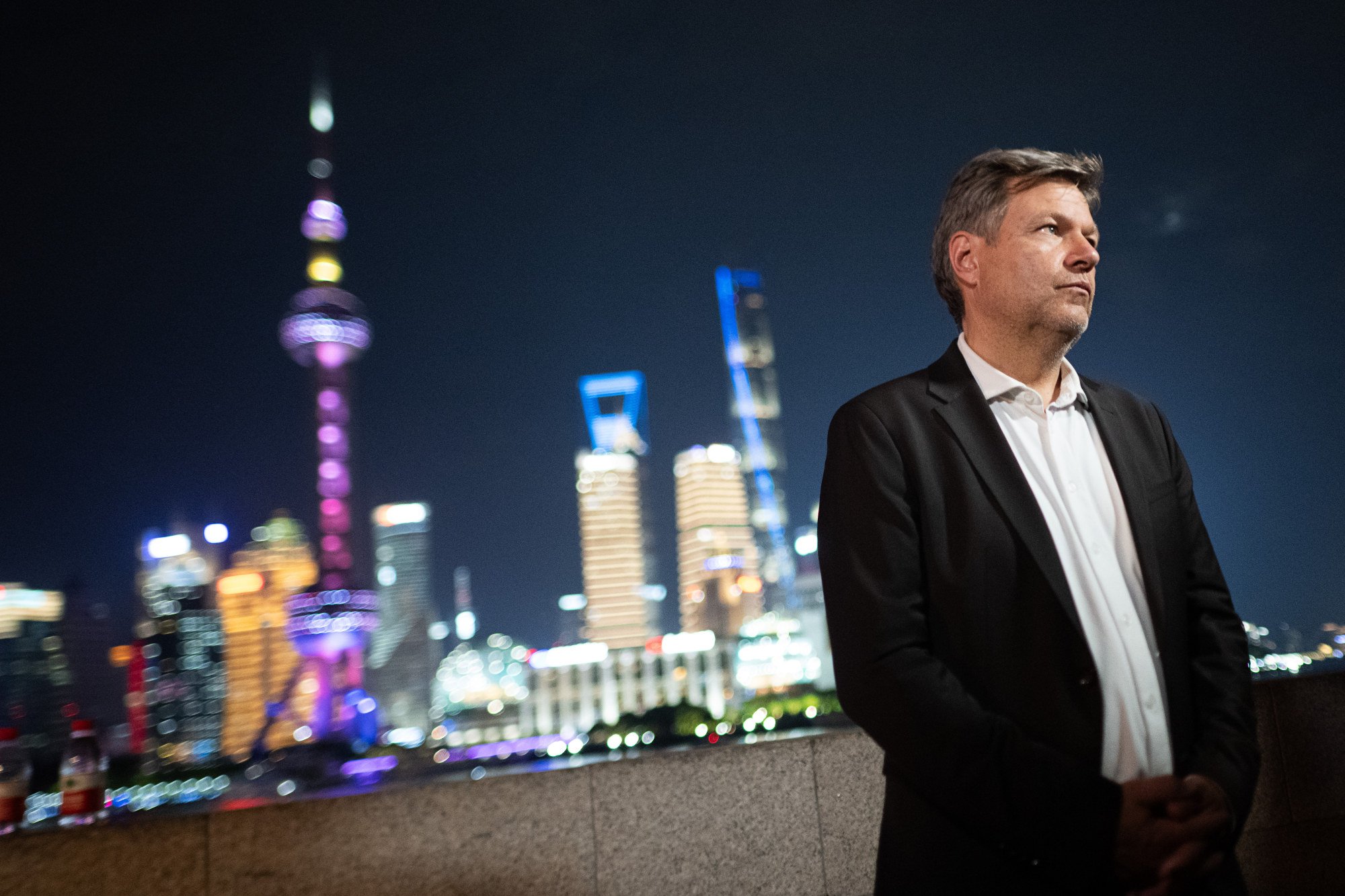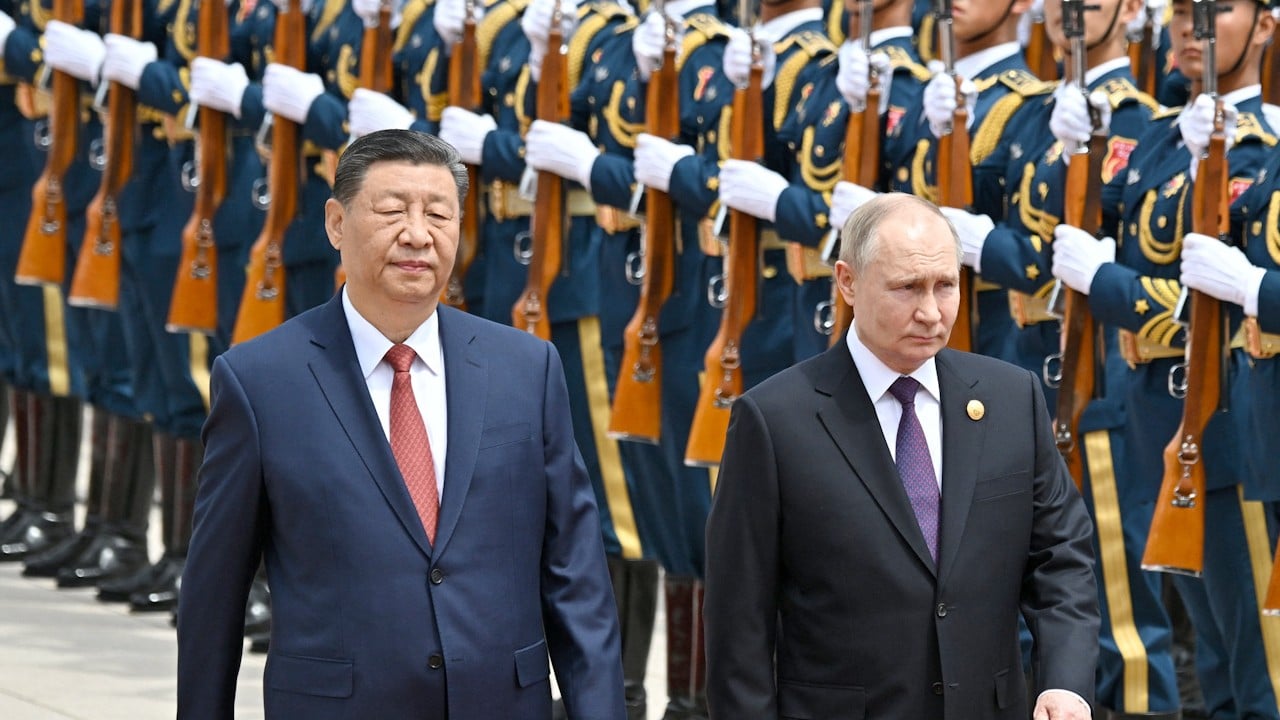“This is new and surprising, as we have not been able to put together a concrete timetable for negotiations in recent weeks,” Habeck said in Shanghai.
He said this was a first step and much more needed to be done: “We’re far from done, but at least this is a first step that wasn’t possible before.”
The minister had said on Saturday that the EU was open to talks on EU tariffs on Chinese exports.
“What I told our Chinese partners today is that the door for consultations is open and I hope this message will be heard,” he said in his first statements from Shanghai after talks with Chinese officials in Beijing.
Harbeck’s visit will be the first by a senior European official since Brussels proposed imposing steep tariffs on imports of Chinese-made electric cars to counter what the EU sees as excessive subsidies.
Harbeck said there was time for a dialogue between the EU and China on the tariff issue before the tariffs take full effect in November, and said he believed in opening up markets but that there needed to be a level playing field.
Proven subsidies aimed at enhancing companies’ export advantage are not acceptable, the minister said.
Another point of tension between Beijing and Berlin is China’s support for Russia in the war in Ukraine. Habeck noted that trade between China and Russia grew by more than 40 percent last year.
Habeck said he had told Chinese officials that this was having a negative impact on economic ties between the two countries. “The evasion of sanctions imposed on Russia is unacceptable,” he said, adding that technological products produced in Europe should not be routed through other countries to get to the battlefield.
The EU is set to impose provisional tariffs of up to 38.1% on electric vehicle imports from China until July 4, with investigations set to continue until November 2, at which point final tariffs, usually for five years, could be imposed.
“This opens the stage where negotiations are possible, discussions are important and dialogue is necessary,” Habeck said.
Earlier in Beijing, Harbeck told Chinese officials that proposed EU tariffs on Chinese goods were not “punitive.” “It is important to understand that these are not punitive tariffs,” he said at the first plenary session of the Climate Change and Transformation Dialogue.
He said countries like the United States, Brazil and Turkey had imposed punitive tariffs, but the EU had not. “Europe does things differently.”
Harbeck said the European Commission had conducted a detailed nine-month investigation into whether Chinese companies had unfairly benefited from subsidies.
He said any countervailing measures resulting from the EU review “are not punitive”, adding that such measures are intended to compensate for the benefits Beijing has given to Chinese companies.

Zheng Shanjie, chairman of China’s National Development and Reform Commission, responded by saying, “We will do everything we can to protect Chinese companies.”
Zheng added that the EU’s proposed tariffs on Chinese-made electric vehicles would hurt both sides. He told Habeck he expected Germany to show leadership within the EU and “do the right thing.”
He also denied allegations of unfair subsidies and said the development of China’s new energy industry was the result of comprehensive advantages in technology, markets and industrial supply chains nurtured amid fierce competition.
“Industry growth is the result of competition, not subsidies or unfair competition,” Zheng said during the conference.
After his meeting with Zheng, Habeck met with Chinese Commerce Minister Wang Wentao, who said Wang would discuss tariffs with EU Trade Commissioner Valdis Dombrovskis via video conference on Saturday evening.
“There is room for action, there is room for discussion, and I hope that this room for action will be used,” Habeck said.
Chinese automaker SAIC Group has designed a series of ingenious products to counter the threat of tariffs if talks fail to reach an agreement.
Xiao Jinfeng, chief design officer at SAIC’s research and development and innovation headquarters, posted photos on his Weibo social media account of products including skateboards, hoodies, sweatshirts, cups, umbrellas and table tennis rackets. The products are mostly yellow and black, decorated with the EU coat of arms and the number “38.1”, which refers to the EU tariff level.
“What doesn’t kill you makes you stronger,” Xiao wrote on Weibo.
“Let’s remember 38.1.”


.jpg?itok=Qexy_wA0)
